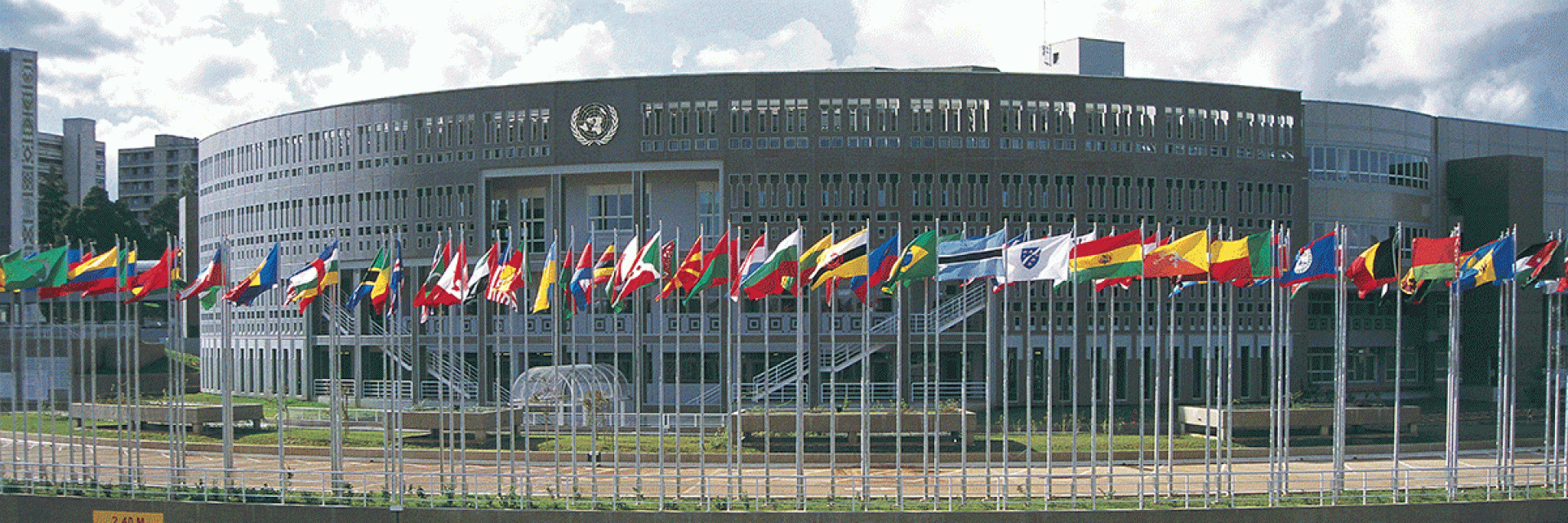Lusaka, Zambia, 20 April 2022 - The Virtual High-Level Dialogue for Southern Africa on Financing Africa’s recovery was organized by the United Nations Economic Commission for Africa (ECA) Sub-regional Office for Southern Africa, on the theme, “Financing Africa’s Recovery: Breaking New Ground”, in preparation for the forth-coming 54th Session of the ECA Conference of African Ministers of Finance, Planning and Economic Development (COM) scheduled to take place from 11 to 17 May 2022 in Dakar, Senegal.
The overall objective was to provide a platform to discuss concerns raised in the issues paper to be presented for discussion at the COM 2022. The paper explores the continent’s financing landscape and evaluates the challenges and opportunities associated with enhancing the quality and scale of Africa’s development financing to support an enduring recovery from the COVID-19 pandemic and other shocks. The Southern Africa dialogue brought to bear the region’s perspectives on the theme.
The Dialogue was officially opened by Mr. Rhino Mchenga, Director for Economic Affair, Malawi Ministry of Finance and Economic Planning and present Chair of the Inter-Governmental Committee of Senior Officials and Experts (ICSOE) for Southern Africa. He thanked ECA for its support to development financing in Malawi. He outlined his government’s plans to increase fiscal transparency and promote private sector growth to broaden the countries’ tax base. He pointed out that, “Malawi is agro-based, with more than 80 per cent of households depending on the agriculture sector, which is of critical importance, not only for subsistence, but as the major export earner, contributing over 30 per cent of the country’s GDP”, He concluded by saying that the Dialogue came at an opportune time as Malawi is looking for new resources as it recovers from the COVID-19 pandemic, and to cope with the Ukraine crisis economic fallout.
Ms. Eunice Kamwendo, ECA SRO-SA Director welcomed over 60 participants and said that the dialogue sought to provide a platform to engage on Africa’s pressing financing issues that will be discussed at the upcoming Conference; make recommendations on issues affecting the region; review the many financing opportunities that remain untapped by the continent; and to evaluate the challenges and opportunities associated with enhancing the quality and scale of Africa’s development financing to support an enduring recovery from the COVID-19 pandemic and other related global shocks.
She noted that, “mobilizing sufficient financing remains a major challenge to achieving our Sustainable Development aspirations. Before the onset of the COVID-19 pandemic, estimated costs for SDG financing were at US$200 billion per annum for Africa. Revised figure post Covid-19 are well beyond the initial estimates – compounding the challenging further. The above picture compels us to seek additional sources of financing beyond what we have been accustomed to as the scale of the challenge is huge”.
Mr. Bartholomew Armah, Chief of Development Planning Section, of ECA’s Macroeconomics and Governance Division presented highlights of the Issues Paper on, “Financing Africa’s Recovery: Breaking New Ground”. He laid out Africa’s financing landscape and sources of funding the member States in Southern Africa can tap into. He responded to queries on how best governments can leverage private sector funding and International Monetary Fund’s Special Drawing Rights.
During the dialogue presentations were made on what measures African countries should put in place to crowd-in private sector financing Mr. Mtho Xulu, President of the South African Chamber of Commerce and Industry gave a private sector perspective, calling for strategic partnerships and a formalised structure to facilitate interactions between the private sector and policy makers, and encourage local investments to boost the region’s economy. Hon. Clemence Chiduwa, Zimbabwe Deputy Minister of Finance and Economic Development among other pertinent interventions, spoke to the technical support needed by governments in the region and underlined the need to harness finance from the diaspora, citing his country as a good example in drawing on this type of funding.
Ms. Moliehi Moejane, representative of Lesotho Ministry of Tourism, Environment and Culture outlined the measures being put in place to mobilize climate financing, as well as various policies Lesotho has implemented to encourage women and youth to venture into green jobs.
In their closing remarks, Mr. Muchenga and Ms. Kamwendo highlighted the main takeaways emanating from the discussions, which they said will enrich the deliberations at the ECA Conference of Ministers.
Issued by:
The Sub-Regional Office for Southern Africa
UN Economic Commission for Africa (ECA)
P.O. Box 30647, Lusaka, Zambia.
Media Contacts:
Mrs. Lavender Degre,
Communication Officer,
Tel: +260 211 228502/5 Ext. 21307
DL: +260 211 376607
Email: lavender.degre@un.org

